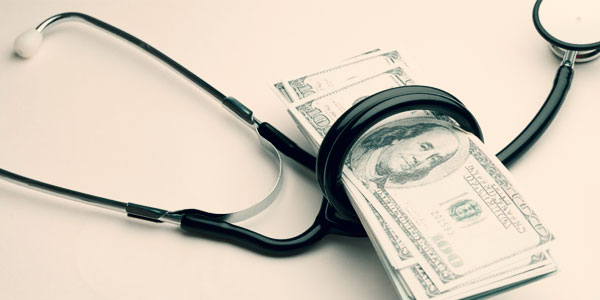Medical emergencies can pop up anytime. What will you do if you face a sudden medical emergency? How will you pay the medical bills if it’s more than what you expected?
You would suggest using your emergency fund in case of a medical emergency. But, what will you do if you don’t have an emergency fund, or the money you’ve saved in your emergency fund is falling short to pay off your medical bills?
Instead of using your emergency fund to pay the medical bills, control some of your daily expenses like optimize your cell phone bills, go on a cash-diet, minimize eating out, choose inexpensive entertainment, and so on. It’ll help you save more than you’ve expected.
Here’s a list of tips that’ll help you save $1,000 in a month:
1. Lower your utility bills
Why will you pay $50 more toward your utility bills when you can save money on them? Check out the tips to save money on your utility bills.
A. Tips to reduce electricity cost:
- Unplug appliances when not in use
- Use gas appliances (Ex: gas water heater) as they’re cheaper electric appliances
- Dry clothes in open air
- Switch on the fan and turn off the air conditioner
- Compare and shop among the electricity providers in your area to get the lowest rate available
- Switch to low-energy fluorescent light bulbs
B. Tips to save on phone bills:
- Pick up a cell phone plan that suits your budget
- Drop landline and use a cell phone
- Go for a prepaid plan
- Avoid spending on unnecessary chargeable ringtones
- Merge your phone, cable TV, and internet services to get good discounts
C. Tips to save on internet and cable TV bills:
- Use internet and cable TV services from the same provider to get best rates
- Drop cable TV and watch TV shows online
- Look out for special deals
- Negotiate the price with your cable TV provider
- Use slower download speed and save more than $100 a year
D. Tips to reduce water bills:
- Install water-saving shower heads
- Insulate water pipes
- Fix water leakage through pipes
- Use cold water to wash clothes
- Use washing machine and dishwasher when there is enough load
2. Limit your household costs
There are a million ways to save money on your household needs. You just need to use your common sense and follow these tips given below:
- Buy unbranded products
- Shop from thrift stores
- Make your cleaners in your home
- Cancel the gym membership and consider walking or cycling to work
- Search for used pieces of furniture and appliances
- Use public transport to save your dollars on gas, parking, and maintenance.
- Choose the right time for shopping-specific items (Ex: buy furniture in January/February, purchase holiday decor after Christmas)
3. Save on food
You can easily save up to $200 on food and beverages if you follow these tips:
- Pack your lunch from home
- Avoid buying soda every weekend
- Don’t purchase takeaway coffee every morning
- Buy groceries in bulk to save more
- Use the leftovers and try to make a dish with them
- Avoid eating out. Instead, eat at home. It may save you $30 to $200.
- Compare the prices of groceries at different stores
- Grow your vegetables in your kitchen garden
- Make a list before you go grocery shopping
- Buy things, which you consume more, in bulk
- Use frozen, canned and dried foods as they’re less expensive than fresh foods
- Purchase groceries on Wednesdays. It’s because discounts from previous weekends on that day and discounts for the new week begins on that day.
4. Search for additional income
Instead of only saving money to pay off unexpected medical bills, search for additional income opportunity. In short, find out the ways from where you can earn more money. You can ask for a raise at your workplace, start a part-time job, do freelancing, and so on. Find out what extra skill you have and use that to earn more.
5. Recheck your budget
“Budgeting is the best policy” to save money. If you don’t have a budget, then plan one immediately. And, if you already have a budget, then make a point to revisit it. Rechecking your budget will help you find out the loopholes, which will help you manage your expenses better. You can also opt for envelope budgeting to avoid unnecessary expenses. Remember, budgeting is the key to savings.
6. Save on shopping
Who doesn’t love to shop? But, impulsive shopping will drain your finances. So, try to be a smart shopper.
To save more money on shopping, check these out:
- Find out the right time to purchase
- Use coupons while shopping online
- Make a shopping list before hitting the stores
- Do comparison shopping
- Use cash for buying anything
- Shop from thrift stores and garage sales
- Opt for out of season shopping
- Do friendship with a salesperson
Saving $1,000 for emergencies isn’t a tough job. You just have to believe in yourself. If you have the confidence that you can do it, then everything will fall into place smoothly.
Read more:









